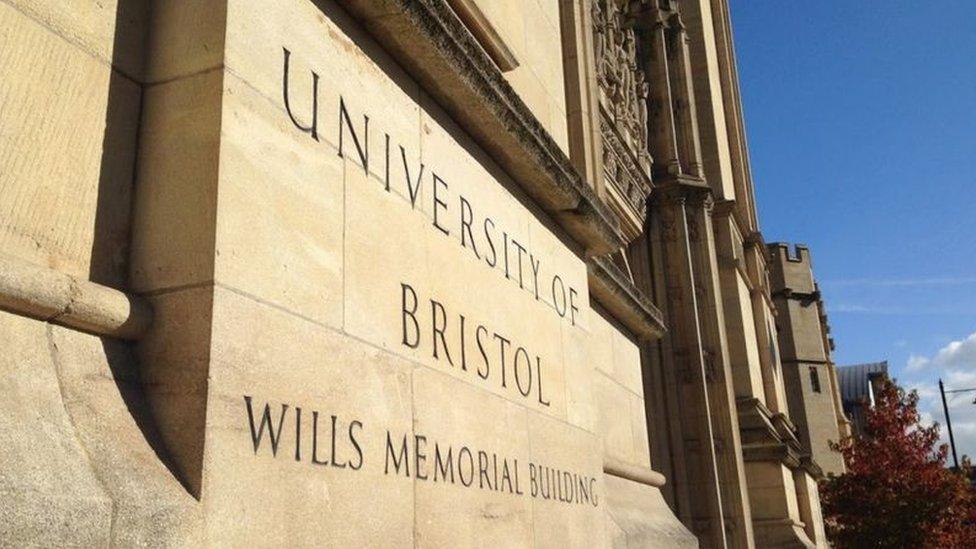Bristol University academic unfairly dismissed for anti-Zionist views
- Published

Prof Miller claimed Zionist organisations had targeted UK universities through a "censorship campaign"
An academic experienced discrimination when he was sacked from his university for comments he made about Israel, a tribunal has ruled.
Prof David Miller was found to have been wrongfully dismissed by the University of Bristol in October 2021.
He had claimed unfair dismissal, breach of contract and discrimination or victimisation on grounds of religion or belief.
The university said it acknowledges the judgment, but was "disappointed".
Prof Miller said: "I am extremely pleased that the tribunal has concluded that I was unfairly and wrongfully dismissed by the University of Bristol.
"I am also very proud that we have managed to establish that anti-Zionist views qualify as a protected belief under the UK Equality Act.
"The determination that I was sacked for my anti-Zionist views is a huge vindication of my case all the way through this process."
'Complaints'
The tribunal heard how a complaint against Prof Miller, who was employed as a professor of political sociology, was first received in 2019 after a lecture at the university, where he said the Zionist movement was one of five pillars driving Islamophobia in the UK.
The university subsequently received a complaint from the Community Security Trust charity, which said said his lecture was a "false, vile, anti-Semitic slur".
After an investigation into the complaint, no further action was taken.
However, further complaints were made to the university after he took part in an event called "Building the campaign for free speech" in February 2021, in which he spoke of being publicly criticised for his views on Palestine and Israel.
'Landmark case'
This subsequently led to disciplinary proceedings and he was dismissed from his role on 1 October 2021 after a hearing found he "did not meet the standards of behaviour" expected of university staff.
Prof Miller then later launched employment tribunal proceedings.
He claimed his belief that Zionism is "inherently racist, imperialist, and colonial" was a philosophical belief, a protected characteristic under the Equality Act 2010.
Zillur Rahman, who represented the academic at the tribunal, said his client has been "vindicated" and the "landmark case" marked "a pivotal moment in the history of our country for those who believe in upholding the rights of Palestinians".
'Disappointed'
A University of Bristol spokesperson said it is reviewing the tribunal's "lengthy judgment carefully".
"The University of Bristol acknowledges the judgment of the employment tribunal but is disappointed with its findings," the spokesperson said.
"We recognise that these matters have caused deep concern for many, and that members of our community hold very different views from one another.
"We would, therefore, encourage everyone to respond in a responsible and sensitive way in the current climate.
"It would not be appropriate to comment further."

Follow BBC West on Facebook, external, X, external and Instagram, external. Send your story ideas to: bristol@bbc.co.uk , external
Related topics
- Published23 October 2023

- Published16 October 2023

- Published17 October 2023

- Published1 October 2021
